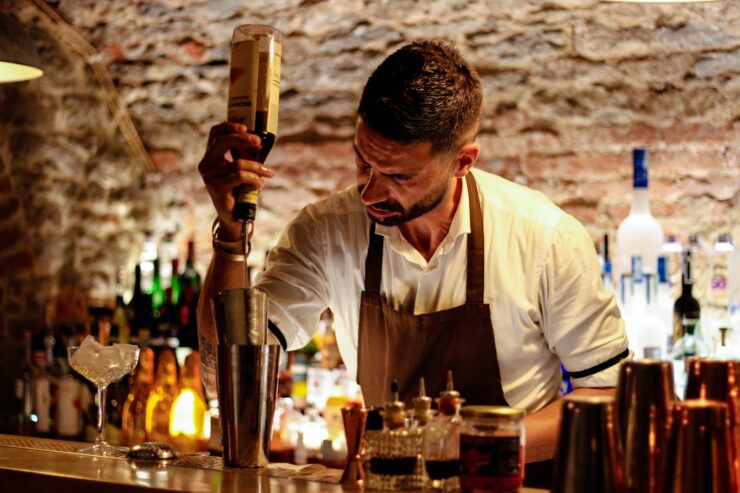Responsible Beverage Service certification is a crucial aspect of the beverage and hospitality industry. It plays a pivotal role in ensuring the safety of both customers and the community at large. RBS certification equips individuals working in establishments that serve alcohol with the knowledge and skills to responsibly handle and serve alcoholic beverages.
As the responsible service of alcohol gains prominence, obtaining RBS certification is no longer just a legal requirement, but also a mark of professionalism and commitment to safety. Whether you’re a bartender, server, manager, or an establishment owner, understanding the importance of RBS certification is the first step towards a safer and more successful operation.
Understanding the Legal Requirements for RBS Certification

Before delving into the intricacies of certification, it’s vital to grasp the legal obligations associated with it. Laws regarding the sale and service of alcohol vary from place to p lace, so it’s imperative to familiarize yourself with your local regulations.
Typically, RBS certification is mandated by government authorities to minimize alcohol-related harm, such as underage drinking and overconsumption. Failing to comply with these laws can result in hefty fines, suspension, or even revocation of your establishment’s liquor license. Therefore, understanding the specific legal requirements for RBS certification in your area is paramount.
Choosing the Right RBS Training Program
Selecting the appropriate RBS training program is a pivotal decision on your journey to certification. A variety of options exist, including in-person classes, online courses, and self-study materials. The key is to choose a program that aligns with your learning style and schedule.
Consider factors like the credibility of the provider, the comprehensiveness of the curriculum, and whether the program meets the legal requirements in your jurisdiction. Look for courses that cover topics such as identifying fake IDs, recognizing signs of intoxication, and handling difficult situations diplomatically.
Preparing for the RBS Certification Exam

An exam to gauge your knowledge and abilities commonly follows RBS certification. Review the course materials in-depth to ensure you are well prepared. Utilize the study aids, practice tests, and flashcards offered by your program of choice.
Understanding the specific format and requirements of the exam will help you feel more confident on the day of the test. Ensure you are well-rested and mentally prepared, as stress can adversely affect your performance.
Practical Tips for Successful RBS Training
Successfully completing RBS training requires more than just memorizing facts. It’s about developing practical skills that can be applied in real-world scenarios. Here are some tips to excel in your training:
- Engage Actively: Actively participate in discussions and role-play exercises during your training. These practical experiences will enhance your understanding and skillset.
- Stay Informed: Keep up to date with the latest trends and research in the field of responsible beverage service. This knowledge will serve you well in your career.
- Seek Feedback: Request feedback from trainers and peers. Constructive criticism can help you identify areas for improvement.
Importance of Ongoing RBS Education and Updates

Ongoing RBS education and updates are crucial in maintaining the highest standards of responsible beverage service. The beverage and hospitality industry is dynamic, with evolving regulations, emerging trends, and new challenges. Staying informed ensures that professionals remain adept at identifying signs of intoxication, preventing underage drinking, and handling difficult situations effectively.
Regular education keeps practitioners at the forefront of best practices, fostering a culture of responsible service. It also enhances customer safety, reduces the risk of legal issues, and protects business reputations. By attending workshops, and seminars, and keeping up with industry publications, individuals can continually refine their skills and adapt to the changing landscape of responsible beverage service. This commitment to ongoing education ultimately benefits both establishments and the communities they serve.
Navigating the Application and Registration Process
To become RBS certified, you must navigate the application and registration process smoothly. This typically involves submitting your credentials and exam results to the relevant authorities. Ensure that you meet all the prerequisites and deadlines stipulated by your local regulations.
It’s advisable to maintain meticulous records of your certification, as you may need to provide proof of your qualifications in the future. This documentation is essential during inspections or audits by regulatory bodies.
Tips for a Smooth Certification Renewal
In many cases, RBS certificates have an expiration date and must be renewed on occasion. Keep track of your certification’s expiration date well in advance to guarantee a simple renewal procedure. Many programs provide refresher courses that address the most recent rules and developments in the sector.
By staying proactive and organized, you can avoid the stress of last-minute renewals and maintain your commitment to responsible beverage service.
Handling Common Challenges During Certification

While pursuing certification, you may encounter common challenges such as difficult customers, legal complexities, or language barriers. It’s essential to remain calm, professional, and empathetic in these situations.
Effective communication and conflict resolution skills are invaluable when dealing with challenging customers. Moreover, seeking guidance from experienced peers or mentors can help you navigate complex legal and regulatory issues.
Incorporating RBS Principles into Daily Operations
The true value of certification lies in its practical application. To create a safer environment in your establishment, integrate principles into your daily operations. Train your staff to recognize signs of intoxication and intervene when necessary. Implement responsible service policies and procedures to prevent overconsumption and underage drinking.
By making responsible beverage service a part of your establishment’s culture, you not only comply with legal requirements but also enhance your reputation and customer satisfaction.
Conclusion and the Impact of RBS on the Industry

In conclusion, RBS certification is not merely a legal obligation but a cornerstone of responsible and ethical practices in the beverage and hospitality industry. By understanding its importance, complying with legal requirements, choosing the right training program, and continuously updating your knowledge, you can navigate the RBS certification process smoothly.
Moreover, by incorporating RBS principles into your daily operations, you contribute to a safer and more responsible drinking culture, benefiting both your business and the community. As RBS becomes increasingly vital in our society, obtaining and maintaining your certification is an investment in your career and the well-being of your customers. Embrace the responsibility, and let your commitment to responsible beverage service shine through in everything you do.

